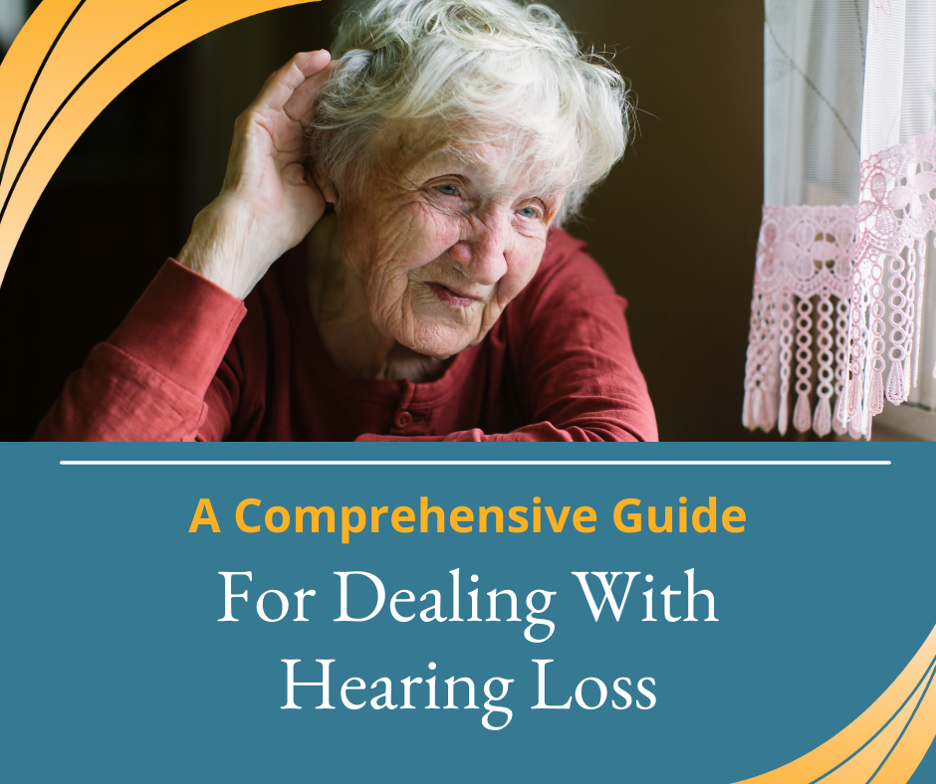
According to the National Institute on Aging (NIH), about one-third of adults between the ages of 65 and 74 have hearing loss. In addition, about half of individuals above age 75 have trouble hearing, even if they haven’t been formally diagnosed with a hearing impairment. These are some staggering statistics … and not exactly something to look forward to as you age! As more adults begin dealing with hearing loss, it’s important to have a full understanding of the problem, including signs, types, and causes of hearing loss as well as how to treat it successfully.
Common Signs of Hearing Loss
The first step to dealing with hearing loss is recognizing that the problem does, in fact, exist. Here are some of the most common signs that your hearing is no longer within the normal range:
- You frequently need to ask others to repeat themselves.
- Voices often sound muffled or it appears that others are mumbling.
- You have difficulty hearing or understanding women and/or children.
- It’s difficult to understand conversations where multiple people are talking at once, or you have difficulty hearing when there is background noise present.
- Friends and family members complain that you’ve turned up the volume on the TV or radio too much.
- Telephone conversations are difficult to understand.
If you have experienced one or more of these signs of hearing loss, it’s important to schedule a hearing testright away. Having a complete picture of the type and severity of your hearing loss will help your doctor prescribe the appropriate treatment method.
Types of Hearing Loss
In general, hearing loss falls into one of two categories:
1. Sensorineural hearing loss – This classification describes hearing loss caused by inner ear or auditory nerve damage. Since the damage is usually not repairable, this type of hearing loss is typically permanent.
2. Conductive hearing loss – As the name implies, this refers to hearing loss that is caused by something interfering with the conduction of sound waves within the ear. One of the most common culprits is too much earwax. Fortunately, conductive hearing loss is often treatable.
Types of hearing loss that fall within these categories include:
- Sudden hearing loss – Sometimes caused by head trauma, this type of hearing loss occurs within a very short period of time, typically within 1-3 days. Get help immediately if you or a loved one experience rapid hearing changes as it could be a sign of an underlying medical problem.
- Presbycusis – Otherwise known as age-related hearing loss, this is perhaps the type with which people are most familiar. Hearing changes typically occur gradually and in both ears, sometimes making it difficult for people to notice until the loss has significantly progressed.
- Tinnitus – This is most commonly experienced as ringing in the ears, but tinnitus can also sound like clicking, buzzing, hissing, or roaring. It can accompany any type of hearing loss and also be an indicator of other health problems.
6 Causes of Hearing Loss
Dealing with hearing loss, or any other problem for that matter, is often made easier by understanding the cause. The top causes of hearing loss include:
1. Exposure to loud noises – Whether through work or recreation, repeated exposure to loud noise can damage hearing both temporarily and permanently. By simply wearing appropriate hearing protection, however, noise-induced hearing loss can easily be prevented.
2. Excessive earwax – Many people are prone to earwax buildup. This creates an obstruction in the ear that can interfere with hearing. The best remedy is professional earwax removal as DIY methods can often cause further damage.
3. Punctured eardrum – Putting foreign objects into your ear, including a Q-tip for earwax removal, can damage your eardrum and cause hearing loss.
4. Health conditions – Hearing loss is often associated with other health issues including obesity, diabetes, heart disease, or infections.
5. Ototoxic medications – While most medications are helpful when used appropriately, they can sometimes have unwanted side effects. Ototoxic medications are ones which can cause hearing loss by damaging the inner ear. Ask your doctor if there is an alternative medication you can use if you experience hearing loss while using a particular one.
6. Hereditary diseases – Sometimes, hearing loss occurs at birth or later in life due to a disease passed along in your genes.
Treatment Options For Dealing With Hearing Loss
Fortunately, dealing with hearing loss doesn’t have to be a lonely task. Once it has been properly diagnosed, your audiologist or other hearing professional can prescribe an appropriate treatment method. The most common include:
- Hearing aids – These are battery operated devices placed inside the ear that amplify sound. Today’s modern hearing aid technology is amazing! When fitted with the best hearing aids for your specific type and severity of hearing loss, you’ll wonder why you didn’t seek treatment earlier!
- Assistive listening devices – Also known as ALDs, these devices assist you in hearing sound from a particular source. They can be used to help you hear the phone, TV, radio, alarm clock, doorbell, and even the smoke alarm, keeping you safe AND helping you hear better.
- Medical procedures – Sometimes, medications or medical procedures, such as a cochlear implant, can help to improve hearing. Your doctor will know if this is an option for you based on your hearing evaluation and overall condition.
Your Next Steps: Dealing With Hearing Loss Responsibly
Now that you have a good idea of what hearing loss looks like, what it’s caused by, and how to fix it, dealing with hearing loss in your own life starts with making the decision to get help. You can start today by scheduling an appointment with one of our audiologists. We’ll help determine the best course of action for your hearing loss and set you on the road to better hearing!

